
KEY DEADLINES
Abstract Submission Deadline: CLOSED
Early Bird Registration Deadline: CLOSED
Accommodation Deadline: CLOSED
Standard Registration Deadline: CLOSED



KEY DEADLINES
Abstract Submission Deadline: CLOSED
Early Bird Registration Deadline: CLOSED
Accommodation Deadline: CLOSED
Standard Registration Deadline: CLOSED

Greg Dore
Scientia Professor Dore is Head, Viral Hepatitis Clinical Research Program, Kirby Institute, UNSW Sydney, and Infectious Diseases Physician, St Vincent’s Hospital, Sydney, Australia. He has been involved in viral hepatitis and HIV epidemiological and clinical research, clinical care and public health policy for 20 years. He has developed extensive national and international collaborations, and is internationally recognized in the areas of HCV natural history and epidemiology, therapeutic strategies for acute and chronic HCV infection, particularly among people who inject drugs, and HCV elimination strategies.
Professor Dore established the St Vincent’s Hospital viral hepatitis service in 1999, and has led its development into one of the leading national and international HCV treatment services, with a particular focus on marginalised populations including people who inject drugs and homeless persons.
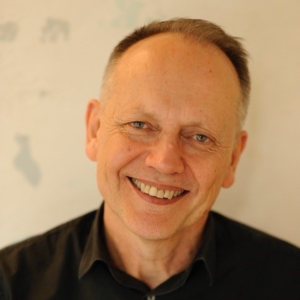
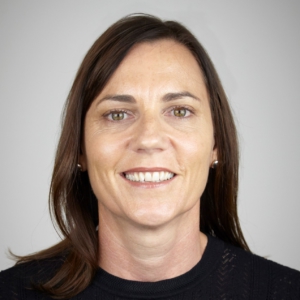
Melinda Hassall
Melinda is the Clinical Nurse Lead at ASHM. Her primary focus is identifying opportunities to advance the role of nurses providing BBV and sexual health care through collaboration, education and identification of policy issues to support knowledge translation and implementation of care within our healthcare system. Melinda is a Registered Nurse, a Fellow of the Australian College of Nursing, Australasian Hepatology Association Board President, holds a Graduate Certificate in Health Promotion and a Masters degree in Public Health.
Karine Lacombe
Karine Lacombe, M.D, PhD, is an infectious diseases specialist whose clinical practice, teaching and research are focusing on viral infections. Dr Lacombe grew in the French Alps where she completed her undergraduate studies at Grenoble Science University (Université Joseph Fourier). She graduated from Pierre et Marie Curie Medical University in Paris and completed her residency in St Antoine Hospital, Paris and St André Hospital, Bordeaux. In 2006, she got her PhD in Epidemiology on HIV / hepatitis B coinfection and the determinants of liver fibrosis. She became an associate Professor in Infectious Diseases in 2007 and got a full professorship position at Sorbonne Universite in 2016. Recent publications include results of phase 2 and 3 clinical trials in HIV, chronic hepatitis as well as SARS-CoV2. She is one of the international leaders on HIV-hepatitis coinfection and has been giving plenary lectures in all international conferences in infectious diseases. Since March 2020, she has been deeply involved as a clinician and researcher but also at a political level in the management of the Covid-19 crisis. She is the head of the Infectious Diseases Department in St Antoine Hospital, AP-HP, Paris.
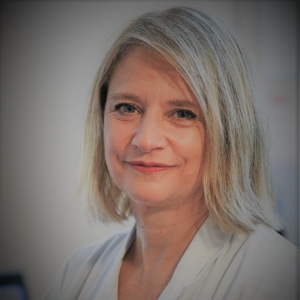
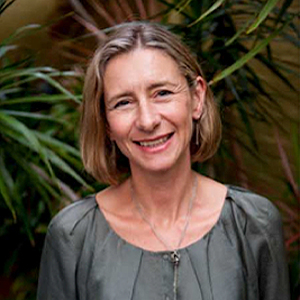
Gail Matthews
Professor Gail Matthews is Head of the Therapeutic Vaccine and Research Program (TVRP) at the Kirby Institute, UNSW as well as Head of Infectious Diseases at St Vincent’s Hospital. She has a strong background in HIV, viral hepatitis and strategic therapeutic clinical trials. As head of TVRP she leads several international clinical trials in HIV and COVID-19, as well as national projects in HCV and HBV. She works clinically as a specialist in HIV, Infectious Diseases and Viral Hepatitis at St Vincent’s Hospital, Sydney.
Michelle O’Connor
Dr Michelle O’Connor is the Director of ASHM’s Global Division. Michelle holds a PhD in adolescent sexual and reproductive well-being from the University of New South Wales, A Masters Degree in International Public Health from the University of Sydney and a Bachelor with Honours in Psychology from Warwick University (UK). Michelle has close to 20 years of experience working in international development and health for a variety of organisations including not-for-profits, government, the United Nations and academic institutions. Her strengths and experience lie in executive management and strategy, program management, research and strategic information and technical expertise in sexual and reproductive health and BBVs. Michelle has lived and worked in the UK, Solomon Islands and Fiji.
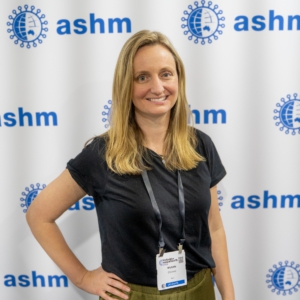
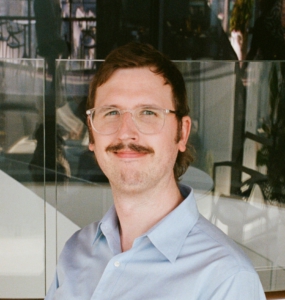
Benjamin Riley
Benjamin Riley is the Policy and Public Affairs Manager at ASHM, leading the organisation’s policy advocacy and public engagement relating to HIV, viral hepatitis and sexual health. Benjamin has worked across clinical and community organisations, with a focus on advocating for LGBTIQ communities, and for the needs of people living with and affected by blood-borne viruses. Benjamin is a researcher in Gender and Cultural Studies at the University of Sydney, interested in gay men and the legacy of AIDS. He is also a widely published freelance journalist.
John Rule
Dr John Rule is the Senior Research Manager at the National Association of People living with HIV Australia (NAPWHA). John has a social science background and has published research in the areas of HIV care and support, community development and health systems strengthening. At NAPWHA, the national HIV advocacy organisation, John contributes to research data dissemination for PLHIV on a range of research studies and is engaged in the national development of programs for quality PLHIV care. He has worked in Australia and overseas as an advocate for HIV-positive people for over 25 years.
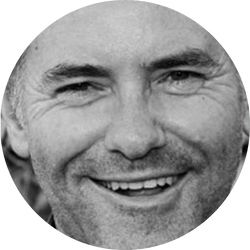
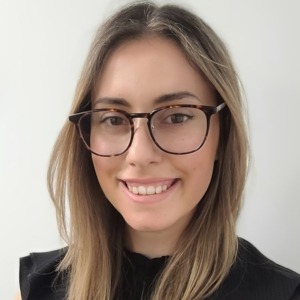
Phoebe Schroder
Phoebe is the Hepatitis C Program Manager with the Australasian Society for HIV, Viral Hepatitis and Sexual Health Medicine (ASHM). She oversees the Hepatitis C program in Australia, providing strategic direction for the program to build capacity in the health workforce. Phoebe holds a Bachelor’s degree in Medical Science and a Master’s degree in Public Health, specialising in Disease Prevention and Health Promotion.
Mark Stoove
Professor Mark Stoové is Head of the Public Health Discipline and a co-Head of the HIV Elimination Program at Burnet Institute. He has researched the transmission and impact of sexually transmitted and blood borne viruses among key risk populations for almost 20 years. His research program undertakes sexually transmitted and blood borne virus surveillance nationally and within specific jurisdictions across Australia. He also specialises in behavioural epidemiology, data linkage, and implementation science projects focused on reducing the transmission and burden of infectious diseases. His projects include bio-behavioural cohort studies of gay, bisexual and other men who have sex with men and people who inject drugs.
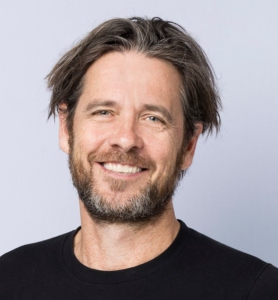

Anchalee Avihingsanon
Dr Anchalee Avihingsanon has over 18 years of experience working in the HIV field in resource-limited settings, conducting clinical trials as the principal investigator. She was a project leader in the INSIGHT network and has coordinated several NIH-sponsored trials, including the SMART and START studies. She is also a member of the Hepatitis Transformative Science Group in the National Institute of Health’s Aids Clinical Trailing Group (ACTG). Dr Anchalee is currently the Clinical Research Site Leader for the Thai Red Cross AIDS Research Centre. In addition, Dr Anchalee has extensive expertise in COVID-19, HIV, TB, Hepatitis (B and C), renal disease in HIV, pharmacokinetics and pharmacogenomics studies with several sponsors (i.e. NIH), including pharmaceutical-sponsored trials.
Cherie Bennett
Cherie is a passionate healthcare professional who has been working in the HIV, Sexual Health, and Viral Hepatitis sector for over a decade. Her large portfolio of work spans a range of government, non-government, research, healthcare settings and her own consulting business working both in Australia and the Asia Pacific region. Cherie works in multiple roles including; Clinical Nurse Specialist (Sydney Sexual Health Centre), Program Manager (Kirby Institute – UNSW), Medical Educator (Australasian Society for HIV, Viral Hepatitis and Sexual Health Medicine) and sessional academic (University of Wollongong).
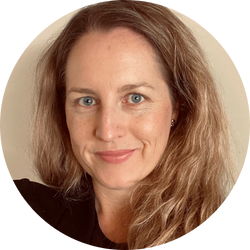

Mia Biondi
Mia is an Assistant Professor at York University and oversees the Nurse Practitioner program. She practices in primary care, with focused practices in HIV prevention, hepatitis B & C. At present her research focuses on increasing hepatitis B, C, and HIV screening and treatment through alternative diagnostic and systems approaches.
Anders Boyd
Anders is a Senior Researcher at the HIV Monitoring Foundation and Biostatistician at the Public Health Service of Amsterdam, both based in the Netherlands. His work has focused partly on virological and clinical outcomes in individuals with HIV and viral hepatitis co-infection.
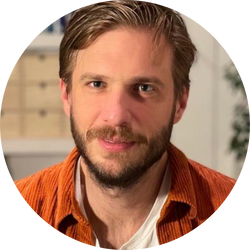

Troy Combo
Troy has a joint appointment with the Burnet Institute and is employed and based at University of Queensland, Poche Centre for Indigenous Health and is the Aboriginal Program Manager for Eliminate Hepatitis C Australia Partnership: EC Australia. He is a Bundjalung man from the Northern NSW and with over twenty years’ experience. He has held high-level positions and has managed state and national projects working for both State and National peak Aboriginal Health Organisations and Hepatitis Australia.
Ben Cowie
Professor Benjamin Cowie is an infectious diseases physician and epidemiologist, with appointments at the Royal Melbourne Hospital and the Doherty Institute. He is a Professorial Fellow in the Department of Infectious Diseases, the University of Melbourne. In addition, Ben serves as Acting Chief Health Officer in the Department of Health, Victoria.


Angela Davidson
Ange is Registered Nurse and has served on the ASHHNA Executive since 2022. She holds a Bachelor Nursing and Social Work (Latrobe University) and Certificate in Clinical Sexual and Reproductive Health (University Melbourne). She has worked in the sexual health/HIV area since 2013 in regional Victoria. She has a particular interest in working and advocating with marginalised populations in rural and regional areas in the space of sexual and reproductive health.
Carrie Fowlie
Carrie Fowlie is the CEO of Hepatitis Australia, the national peak body representing the state and territory hepatitis organisations and the interests of 350,000 Australians impacted by viral hepatitis. Carrie has two decades of peak body, policy and social justice experience. Her collaborative work has resulted in policy, programs and law reform consistent with the evidence and the priorities of her constituencies.


Charles Gilks
Charles has been working in the HIV/AIDS field since the mid 1980s as a clinical academic, describing the clinical spectrum of AIDS in Africa, then conducting formative trials of disease prophylaxis and antiretroviral therapy. Aiming to get his research into policy and practice, he moved to WHO Geneva in 2001 to lead treatment and prevention scale-up, including 3by5. His team generated all treatment and prevention guidelines for resource-limited settings and published the landmark Lancet modelling study that sparked Treatment as Prevention.
In 2009 he moved to India as UNAIDS country coordinator to support the national response to HIV. He was appointed Head of the School of Public Health at The University of Queensland in 2013 and in 2014 became the first Queensland Professorial chair of HIV and STls. As a clinical researcher, he has published over 250 peer-reviewed papers, with 17,500+ citations. His Google H index is 67.
Kelly Hosking
Kelly is the Director of Sexual Health and Blood Viruses for NT Health. Her PhD research aims to improve the cascade of care for people living with chronic hepatitis B and includes data linkage, systems improvement, CQI, capacity building and co-development of culturally safe models of education with and for the Aboriginal and Torres Strait Islander health workforce.

Shelley Kerr
Rebekah Lamb
Rebekah has a professional background in public health, specifically communicable diseases and sexual health and has worked in this sector for the past 8 years. Rebekah has extensive project management and health promotion experience both in Australia and internationally. Rebekah has held several roles coordinating community BBV programs supporting people living with BBV’s and developing and delivering education programs.
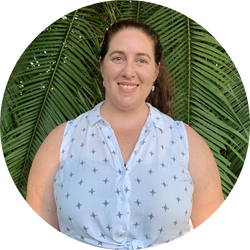

Niklas Luhmann
Dr Niklas Luhmann is a medical doctor with a Master of Science (Msc) in International Public Health from the University of Berlin. He has been working for more than 10 years with different institutions on access to healthcare with a focus around HIV and viral hepatitis related prevention, treatment and care.
He joined WHO headquarters in Geneva in 2019 where he works as a technical officer and focuses on viral hepatitis prevention, testing and priority populations.
Alison Marshall
Alison Marshall is a Lecturer co-appointed at the Kirby Institute and Centre for Social Research in Health (UNSW Sydney). Her most recent research focuses on enhancing access to HCV-related care for people with a history of injection drug use.
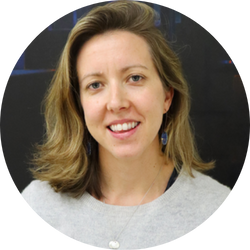
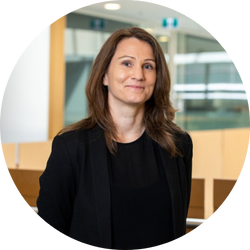
Marianne Martinello
Marianne is an Infectious Diseases Staff Specialist at Prince of Wales Hospital and Justice Health & Forensic Mental Health Network, and a Senior Research Fellow at the Kirby Institute, UNSW. As a clinician-researcher, she aims to optimise the diagnosis and treatment of infectious diseases, particularly blood-borne viruses, among vulnerable populations.
Kris McKee
Jessica Michaels
Rosmawati Mohamed
Professor Dr Rosmawati Mohamed is a Consultant Hepatologist and has worked tirelessly as a hepatitis and cancer advocate. She was appointed as Founding Co-chairperson of the WHO Strategic and Technical Advisory Committee for Viral Hepatitis and Co-chairperson and Founding Committee Member of the Coalition to Eradicate Viral Hepatitis in Asia Pacific.


Rachel Sacks-Davis
Dr Rachel Sacks-Davis is a Senior Research Officer at the Burnet Institute in the Disease Elimination Program. She is the Senior Manager of the International Collaboration on Hepatitis C Elimination in HIV Cohorts (InCHEHC).
After completing her BA (Hons)/BSc Rachel joined Burnet as a Research Assistant in 2008. From 2010-2014 she completed her PhD in epidemiology at the Burnet Institute on hepatitis C transmission and natural history amongst people who inject drugs. She was awarded an NHMRC Early Career Fellowship (2016-2021), which allowed her to play a leadership role in the formation of the InCHEHC collaboration.
Andrew Scheibe
Dr Andrew Scheibe is a medical doctor by training who works in harm reduction research, programmes and policy in South Africa and the region. His work focuses on the intersections between infectious diseases, determinants of health, drugs and rights. He works a visiting professor at the Urban Futures Centre at the Durban University of Technology.
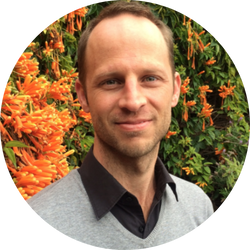

Kasha Singh
Dr Kasha Singh is an infectious diseases physician with a wide range of interests including public and refugee health and translational research. Dr Singh worked in the UK for 10 years, completing a HIV fellowship at Chelsea and Westminster Foundation Trust in London. Whilst based in London, Dr Singh was also involved in running international clinical trials of tuberculosis treatment with the MRCP/UCL, including capacity development and education. Dr Singh is interested in persistent infections and the public health impact and management of infectious diseases, particularly HIV, hepatitis B and tuberculosis.
Sunil Solomon
Sunil Suhas Solomon, MBBS, PhD, MPH, is an Associate Professor of Medicine and Epidemiology at the Johns Hopkins University School of Medicine, USA. He completed his medical training in India and received a Master’s in Public Health and a doctorate in epidemiology from Johns Hopkins University. Sunil has been elected into the Phi Beta Kappa and the Delta Omega honours societies and has received a Director’s Award from the National Institutes of Health. His research is primarily focused on the epidemiology, clinical management and access to prevention and treatment services for HIV, viral hepatitis and other infectious diseases, especially among key populations globally.


Thomas Tu
Associate Professor Thomas Tu is a molecular biologist and is passionate about developing an HBV cure and mitigating the associated liver cancer, as he himself lives with chronic Hepatitis B providing him with unique perspectives on the disease as a researcher, patient, and advocate.
Angela Uilderks
Angela Uilderks is the CEO of Hepatitis Queensland, a community based, non-government organisation representing the interests of Queenslanders affected by, or at risk of viral hepatitis. With a career embedded in the not-for-profit sector, Angela has extensive experience working with diverse, multi-cultural communities and advocating to drive positive community outcomes via policy change and practical operational outcomes.
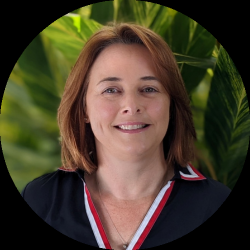

Daniela Van Santen
Dr van Santen is an infectious disease epidemiologist specializing in HIV and HCV (co-)infection among key populations. Dr van Santen obtained her PhD degree in Epidemiology and Public Health at the University of Amsterdam and is currently a postdoctoral fellow at the Burnet Institute (Australia) and the Public health Service of Amsterdam (the Netherlands). Dr van Santen has extensive experience working in international collaborations and is currently co-coordinating The International Collaboration on Hepatitis C Elimination in HIV Cohorts (InCHEHC).
Gilles Wandeler

